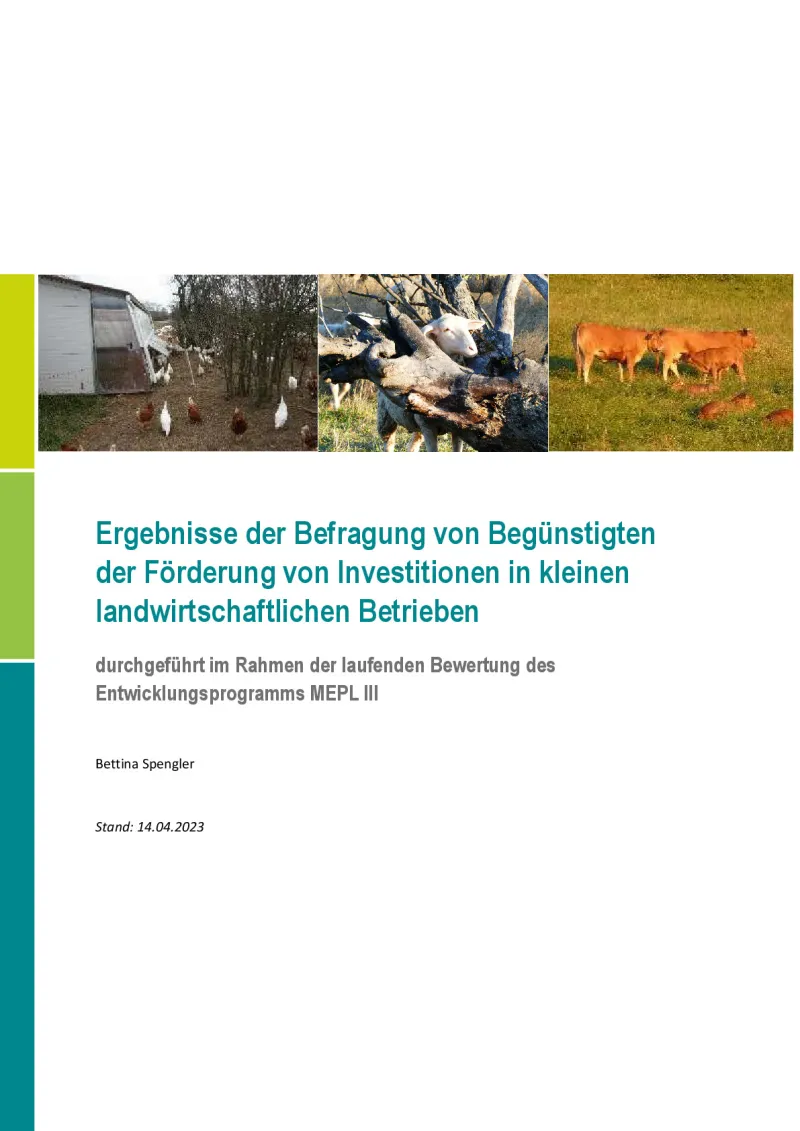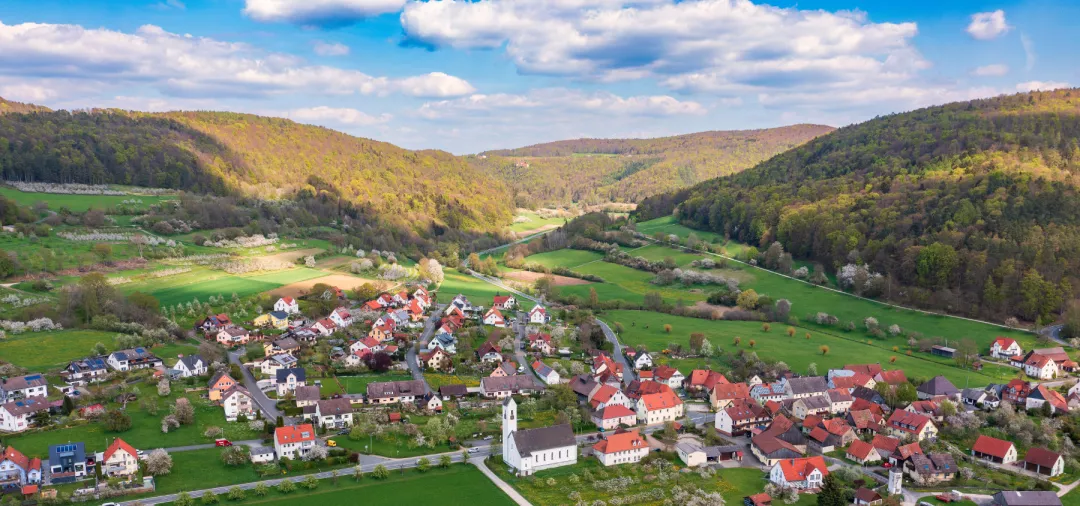Results of investment support in small farms in Baden-Württemberg
- Evaluation
- Smart Villages
- Jobs, Growth and Equality in Rural Areas
- Environment
- Agricultural Productivity
- Sustainability
- Evaluation
This report presents the results of supported investments in small farms carried out as part of the ongoing evaluation of the 2014-2020 Rural Development Programme (RDP) in Baden-Württemberg, Germany.
- Germany
- 2014-2022
- Socio-economic impacts


This report presents the results of the survey of beneficiaries of supported investments in small farms carried out as part of the ongoing evaluation of the 2014-2020 RDP of Baden-Württemberg (MEPL III).
The aim of the survey was to identify the direct effects of the supported investments and thus to verify the achievement of the measure.
The survey collected basic information on 60 companies and information on the objectives of the supported investments, their effects, and the funding process.
The small farms were chosen in such a way that between the beginning of 2018 and the end of 2021, they had put the subsidised investment assets into operation. Thus, it was ensured that the objects had been used for at least one year and thus were possible to make statements about their effects on the farm and cultural landscape.
In terms of limitations, the report points out that:
- The effects of the support are overlaid by other external factors, such as frequent dry years, so distortion can arise, especially in the revenue sector or in the development of animal numbers. Such aspects can be examined more closely with operational case studies.
- Questions on long-term management are not the subject of this study.
The report concludes that the funding programme for the promotion of investments in small agricultural enterprises has a clear, positive impact, especially on the labour economy and animal welfare in small farms.
It also contributes – albeit to a lesser extent – to improving the income situation. Accordingly, the preservation of small farms and land management is mainly ensured in border yield regions.
In addition, keeping open and preserving the cultural landscape is supported in accordance with the measures' objective.
For the farms themselves, the focus is on facilitating work and changes in animal husbandry. Simplification of work is not only necessary for the main farms, but also for secondary farms, which are particularly targeted by this measure. In order to be able to carry out their agricultural activities alongside their main occupation, work efficiency must also be increased here.
It is difficult to answer the question of the extent to which the measure makes a comprehensive contribution to the preservation of the cultural landscape. The applicants are mostly small farms focused in the Black Forest region. Due to the topography, these are often areas that are difficult to farm and are not kept open by anyone else. This means that the benefit is measured not only in terms of absolute area but also in terms of the effect on the landscape. On a local or regional basis, keeping small areas open can already contribute to a more advantageous local image, which has a positive effect on locals and visitors. In addition, even in small spaces, valuable biotopes can be preserved by keeping them open.
The preservation of the cultural landscape as an overarching objective also depends on various factors, including the level of the compensatory allowance, the improvement of income diversification, and support through agri-environmental and climate measures. An overarching evaluation will take place under the RDP of Baden-Württemberg (MEPL III).
With regard to the slope special machines, cross-company and/or operations at municipal level seem to be limited in terms of number and area. On the other hand, some new areas are included in grazing and one-fifth of those surveyed indicated that they were engaged in contractual landscape management.
There are questions and connections that cannot be investigated within the framework of such a study, or only to a limited extent, and were therefore not the subject of the survey. Thus, the effects of the support are also overlaid by other external developments, such as frequent dry years, so distortion can arise, especially in the revenue sector or in the development of animal numbers. Such aspects can be examined more closely with operational case studies. Questions on long-term management are also not the subject of this study. Since a cost-effectiveness calculation is carried out during the funding process and the funding is earmarked for twelve years, it is largely guaranteed that the funding will be maintained over this period from the date of approval. In addition, other factors are decisive for the continuation of farms, such as the regulation of farm succession or the increase in the resilience of farms to external factors.
Author(s)
IfLS Consulting and Projects GmbH